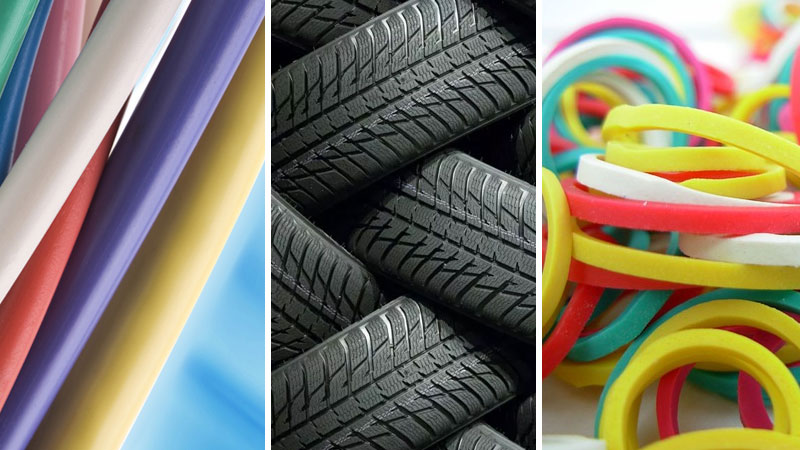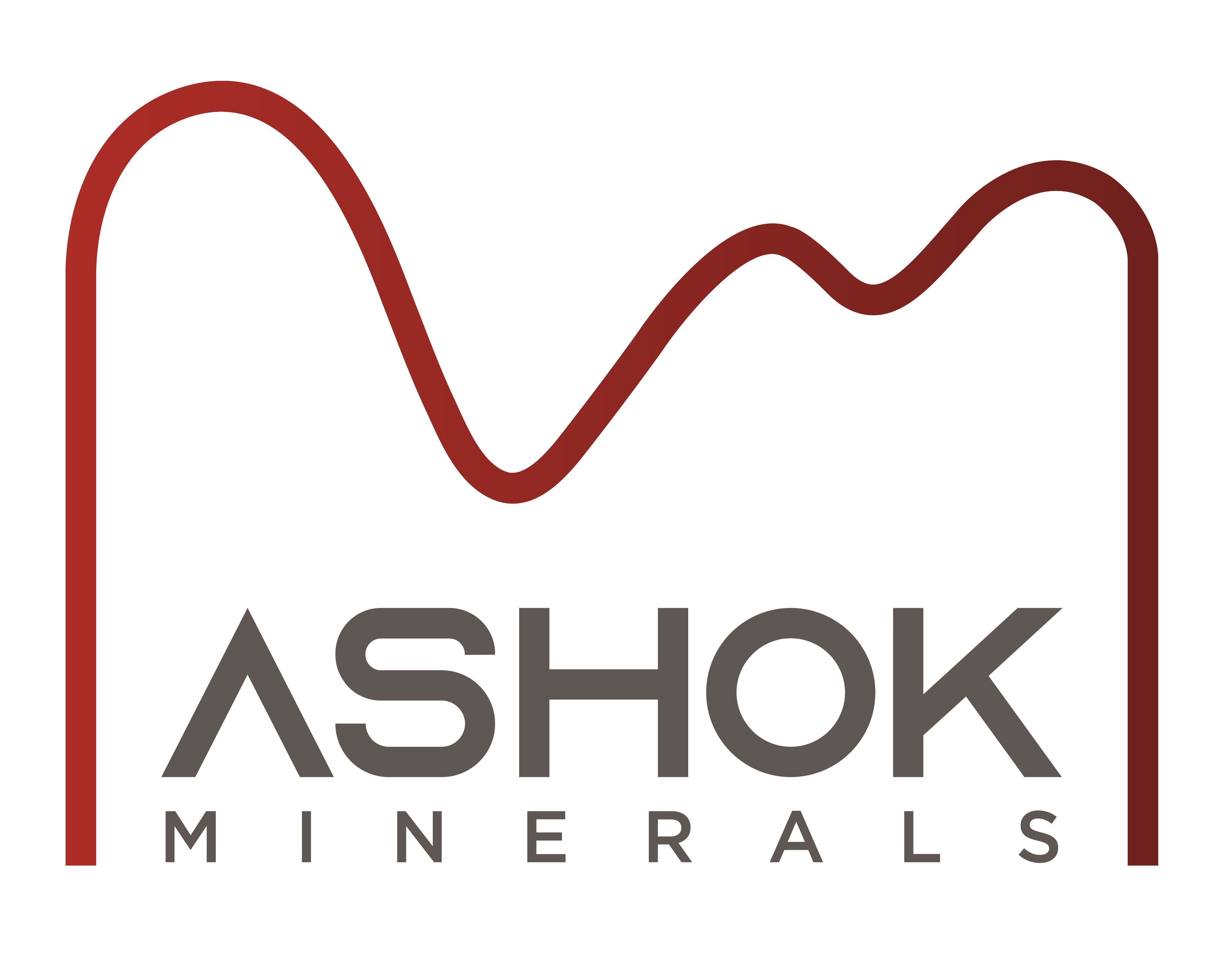
RUBBER
Ashok Mineral Enterprises
We are an Industrial Mineral Manufacturing company head quartered in Chennai, India. We source and produce high-quality Industrial Minerals which are used as raw material in the Rubber manufacturing Industry. Our top products are Barytes, Calcium Carbonate, Clay / Kaolin, Dolomite, Chalk Powder, Graphite, Talc, Mica, Quartz / Silica.
Here is our extensive list of products for the Rubber Industries
A rubber compound contains, on average, less than 5 LBS of chemical additives per 100 LBS of elastomer, while filler loading is typically 10-15 times higher of the ingredients used to modify the properties of rubber products, the filler often plays a significant role. Most of the rubber fillers used today offer some functional benefit that contributes to the process ability or utility of the rubber product
Barytes
Barytes is added before polymerization, for increasing the weight of the finished rubber goods and also imparting white Color when white-colored product is required to be made. Inertness, brilliant white color and high specific gravity are the chief criteria for Barytes in the process of making synthetic rubber.
In rubber industry, Barytes less than 500 Mesh can be used as the filling of rubber products to save cost. It can improve the intensity, and acid, alkali, and water proof, and also has benefit for the Natural Rubber and Synthetic Rubber. Generally, barytes of 99.5% or even higher purity is preferred (which practically does not occur in nature) and as such, precipitated BaSO4 is used. The Bureau of Indian Standards (BIS) has standardized the specifications in 1973. According to this standard, barytes for this use should contain 0.5% (max) each of water and acid-soluble matter, 0.005% (max) Mn as low as possible Fe and Cu, and the particle size should be less than 75 microns.
China clay / Kaolin
China clay is mixed with rubber as filler before its casting. Rubber molecules consist principally of flat platelets, which accounts for its elasticity and hardness. The effect varies considerably with different clays. Hard clays reinforce the stiffness of rubber in a greater degree than soft clays.
Both hard and soft clays improve acid resistance of rubber when used in acid tank lining.
Low shrinkage, fine size of particles which consist of flat platelets, light weight, high dispersion, and chemical inertness of china clay are the main criteria. As the clay is intimately mixed with the molten rubber, high LOI (i.e. shrinkage) will result in cracking. Grit is objectionable because it will not facilitate intimate mixing. For the same reason, particle size of the clay should be very fine (preferably less than 10 micron) with good dispersion so that the lightweight particles can uniformly disperse in the medium of the molten rubber. Lime is objectionable because it is hygroscopic and will cause crumbling of the rubber product on exposure to air. Color is not very critical, and off colors acceptable.
Calcium Carbonate / Calcite / Limestone
Adhesive properties of limestone, Calcium Carbonate or Calcite are made use of in the making of synthetic rubber. Ground limestone, Calcium Carbonate or Calcite is useful where off-white color is permissible. In rubber, it serves to increase hardness and the volume of its products and save expensive natural rubber or synthetic rubber, thereby greatly reducing costs. Calcium carbonate is filled into rubber to obtain higher tensile strength, tear strength and abrasion resistance.
Dolomite
Dolomite is used in powdered form as a filler as substitute of precipitated calcium carbonate or PCC to increase whiteness and hardness in rubber.
Chalk
Powders of chalk or lime shell and precipitated calcium carbonate are used as non-black fillers. Whiteness and softness are the two most crucial criteria.
Talc
Talc is used as a dusting agent for lubricating Mold and for preventing surfaces from sticking together during manufacturing. Talc’s Chemical inertness, platy structure and smooth greasy feel are the main criteria. As it is used in the form of dust, fineness of size is obviously important and grit is highly objectionable.
The platy structure has a smoothening effect on the surface of rubber tires. The Bureau of Indian Standards (BIS) in its recommendations of 1978, has set limits for certain critical parameters for talc for its use as a filler in rubber. The relevant important parameters according to it are: matter insoluble in HCl acid 95% (min); grit 0.02% (max); size 75 micron (max). Besides, talc can also be used as a compounding agent to produce certain types of semi-hard rubber, and for that purpose, the chemical composition of talc becomes relevant.
Micronized talc is used as a reinforcing agent in mechanical rubber goods such as hoses and belts and as an insulating agent in wire and cable coatings. Talc also functions as a process aid in extruded rubber profiles such as the seals on automobile doors and windows.
Mica
The smooth, rounded and ultrafine particles obtained by wet grinding mica process are added as filler in the manufacturing of synthetic rubber mainly for increasing toughness and heat-tolerance. Both these properties assume importance when the rubber is used for manufacturing of tires. The smoothness and roundedness of the particle serve to increase the efficiency of the lubricants and greases.
Silica/Quartz
Ground silica also known as quartz is used as a functional filler and extender in synthetic rubber manufacturing.
Other Industries We Cater to
Paint
Oil Well Drilling
Friction
Polymer Compounding & Master Batches
Welding Electrodes
Grades We offer
Ashok Mineral Enterprises, Chennai, Tamil Nadu, India offers wide products for various industries:
For more details on our products for Rubber, please connect with us.
